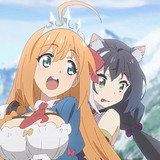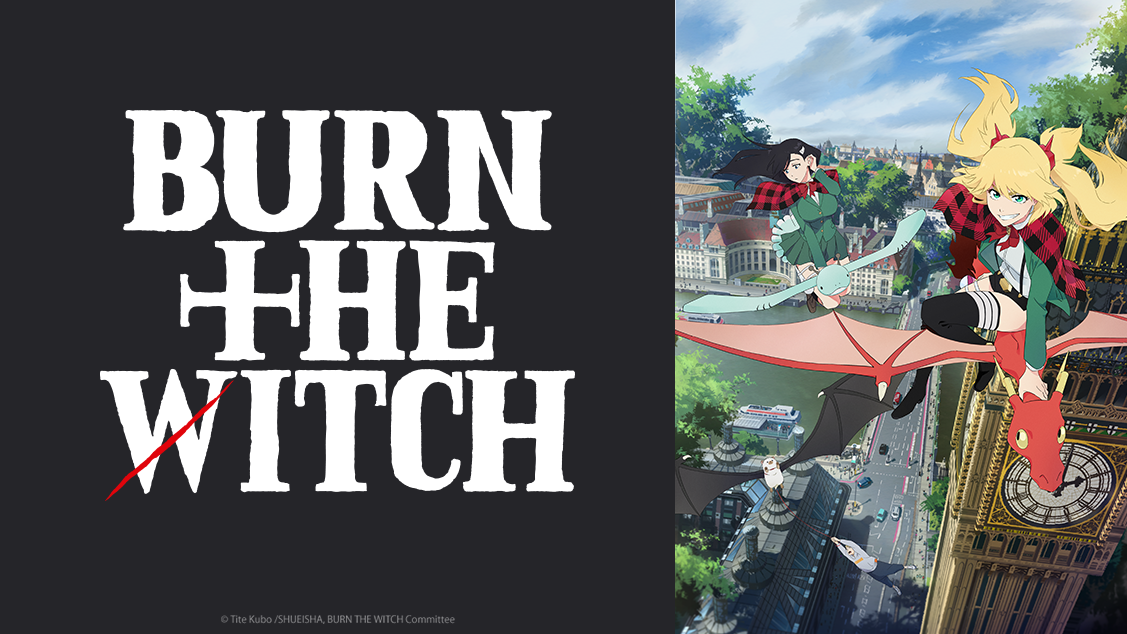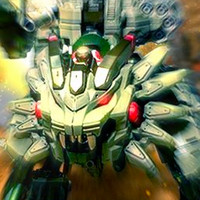#The Ancient Magus’ Bride’s Creator and Editor Dive Into Its Mythological Aspects and Success

The Ancient Magus’ Bride is a series that has captured many fans’ hearts with its intricate lore and deep characterization, has over five million copies in print, and has been adapted across multiple mediums. To celebrate the success of the anime’s second season, mangaka Kore Yamazaki and her editor Kyohei Shimpuku flew out to Anime NYC 2023 to provide fans the insight behind the series’ success and dive into the story’s themes. Anime Trending and multiple outlets had the opportunity to interview both creatives at the event.
The art in The Ancient Magus’ Bride is obviously very unique and very expressive. Can you tell us about your mindset or the inspiration in making the characters and that world?
Kore Yamazaki: When I’m writing, I first think about the personality of the character, then I think about what kind of expressions they will do, and then do the same expression and then write it down and draw it.
Anime Trending: Since Crunchyroll Expo 2017, we’ve received the second season of the TV anime series. Could you talk more about your involvement with the season two project with Studio Kafka?
Yamazaki: My involvement in the anime production is that I look over everything. I look at the characters and the little things that the characters wear. Also, when it comes to anime, there are original anime parts. So, I look over that in the scenario and what the characters say as well, and make sure if it fits or not. I’m also involved in thinking of these characters’ sayings.
The Ancient Magus’ Bride has a lot of references to real-life mythology and folklore, especially in European countries. How much do you research the history of mythology and folklore in those countries?
Yamazaki: In terms of looking up things, I base most of my stuff on books. Thankfully, there is the internet right now, so I also use online resources. But I understand that when it comes to online resources, they’re not always correct. So, I make sure to buy the published ones that are for sure [correct].
In terms of history, I’m not really quite sure, but I try my best to look it up and [find] whatever fits in the manga. Also, I change a little bit of things so that it fits in the world of what I’m writing. One more thing that I want to add [is that] I also go to these places as well. Right now, the world is set in the UK, so I visited there as well. I [visited] the museums and also the historical sites, and those are part of my resources.
What is one aspect you want fans to learn while watching the show?
Yamazaki: I don’t have one particular point, but if I had to say that towards the end, I would like you guys to see the ending of it. One thing that’s very important is that you guys can look at it as a story — so from the beginning all the way until the end and how everything evolved through that. It would be great if you guys could kind of feel something or [have] any thoughts that would come up while you’re watching.
Kyohei Shimpuku: I have two points. The anime production is Studio Kafka, and this studio was built to really produce The Ancient Magus’ Bride, so they put a lot of passion into it. If you guys watch the anime, we appreciate that you would really see the studio’s passion and the energy that they put into this work, and I will be happy if you could look at that. They’re overworking [themselves to] death, but they put a lot of energy and effort into this. So yeah, it would be great if you could feel that energy of the studio production.
So for the second point, I would like to say that it’s just like what Kore Yamazaki-sensei said — it would be great if you guys could see the anime from the first episode all the way until the twenty-fourth and see how that moves along. This anime is about a girl named Chise trying to help others just like her, and when we were trying to build this character, we were always trying to think about how this character would help others and what is the best way for her to help others. And it was a struggle to think about her and build her character. When you guys look at the last episode, there might be good things about it or bad things about it that you guys might feel, but it would be great [for] you guys to see that character buildup and how we put our energy into that.
Chise faces a lot of emotional turmoil throughout The Ancient Magus’ Bride. How do you approach depicting darker and more emotional situations in the story in a way that is still compelling for readers?
Yamazaki: When I was making the character Chise, actually it was very easy to really come up with this character. I don’t have one clear way of building this character, but I would say that it’s the dark side that’s inside me. I also talked to other people as well and listened to their stories and kind of saw the dark parts of their lives. It’s kind of like baking a cookie — I mixed everyone’s information into all these ingredients and then whatever I think is a cookie is basically what Chise is.
Also, I will probably say that it was easy to come up with Chise’s character, but it’s also myself. It’s really hard to express who Chise [is]. I would also say that she’s also kind of like a character that kind of represents myself as well, and I try to remember that it’s a character that could represent the reader as well. So when the reader reads and knows about Chise, they will be able to put their emotions into this character and kind of relate to this character.
What lessons have you taken from the success of The Ancient Magus’ Bride for your future works?
Yamazaki: When I was writing The Ancient Magus’ Bride, one thing for sure was focusing on the readers. I definitely thought about the readers and how they would feel when they were reading my manga. So every time I kept writing the story, I kept thinking about how the readers would feel or react to it. I’m not sure if this will be a lesson to myself, but I’m really glad that I was able to write this and the fact that it’s actually ongoing. So, I am really happy about that.
How has the reception of your work impacted you and kept you motivated?
Yamazaki: In terms of motivation, one thing for sure is the comments from all the readers and the fans. It’s actually like a “meal” for me, you know? It gives me all the energy. So, I really love all the comments from the readers. Also, another thing is that the fact I’m able to write this manga and the fact that it’s coming out overseas, I’m actually able to be here in New York City. I really love traveling and I really love going out overseas. So, I am very thankful that you guys are inviting me here, and it’s actually a really great motivation for me. One more thing: I [got] a dog and I realized that I really need to make this dog really happy. So, that’s one of the motivations for me, you know, to work harder and make my family and my dog really happy.
So there have been a couple of spin-off manga that you supervise. How did you balance giving those writers and illustrators the creative freedom while also preserving the heart and soul of the series?
Yamazaki: In terms of balancing out the freedom and also really preserving the heart and soul of the artwork, it’s really hard to see. I do try to make sure that the screenwriters, the authors, and everyone put their thoughts into it and try to leave all the good parts of it. Then I make sure that it’s all balanced out.
Shimpuku: First of all, the main important part is to really leave the important part of The Ancient Magus’ Bride that Yamazaki-sensei [came up with]. But also, we believe that when more people are involved in making the spin-offs, we believe that there will be a new world, a new talent of Yamazaki-sensei’s work that will be brought up. So that’s why we decided on this spin-off version as well. Of course, Yamazaki-sensei looks at the screenplay as well. She checks everything, and we also have a great respect for all the authors and people producing this spin-off. They also have a great respect for everyone. So that’s why we’re able to put such great work into this.
So you mentioned that you’re glad that you’re able to continue this as an ongoing series and that you’d like people to look forward to the ending. How much do you feel like you planned out the rest of the story versus coming up with the plot lines?
Yamazaki: When it comes to the ending or the last part of the story, I do have a thought about how this would end. But before that, I wanted to write more stories in between. But like these [people] mentioned, “Oh, you gotta be careful that you’re not going to die before then!” So yeah, there’s a lot of work that I still want to do, but also, it’s really important that it’s about the readers and how the fans are actually really loving this.
Have there been specific concepts or genres that you’ve yet to explore among The Ancient Magus’ Bride, Frau Faust or something else, but would love to create a story around in the future?
Yamazaki: I think for myself, I’m very good at writing fantasy. That fits me the best. Other than that, I’m also interested in horror. So one day, I would be interested in writing some kind of work in the horror genre as well. History is one thing that I’m also interested in as well, so maybe in the future I will look into these as well.
What are your thoughts on The Ancient Magus’ Bride stage play? Would you like to see a tour in the US?
Shimpuku: Like you mentioned, we did have a stage play in Japan. And yeah, it would be nice if we could see one in America.
AT: The manga volume 19 will be released in English next month. Could you talk about the upcoming release and what fans can expect?
Yamazaki: Volume 19 of the manga is also the ending of the anime for season two. So just like how fans are waiting for the season two anime, it would be great for you guys to be excited for the volume 19 manga as well. There may or not be a conclusion, but once you guys see it, you guys will find out. So I hope you guys will be anxious and excited waiting for that.
So of all the other fantasy series that are out there that you’ve come across, what do you try to do in The Ancient Magus’ Bride and continue to try to set it apart?
Yamazaki: When it comes to the differences for other fantasy work that I do, in The Ancient Magus’ Bride, for the characters of the fairies, I try to put more uniqueness into it and for the design of the characters as well.
What are your biggest manga influences as a creator, or specifically a manga series?
Yamazaki: When I grew up, I was surrounded by manga. So, I’ve been reading manga as a child, and probably one of the most influential ones was Kouta Hirano who wrote Hellsing. And also, Black Lagoon is another one that has influenced me.
Another one that I just remembered — I’m not sure if it’s translated into English in America — but the title is called Ashiaraiyashiki no Juunin-tachi. They have a lot of unique characters and I was very influenced by that.
AT: There’s a lot that’s happening in the latest chapters of The Ancient Magus’ Bride. How would you describe the series to new and upcoming fans to try and start reading the series?
Yamazaki: For fans or readers who are going to start reading The Ancient Magus’ Bride, I recommend that you find a character that maybe kind of represents you, or maybe a friend that represents you. Like I said before, when I write The Ancient Magus’ Bride, I try to make sure that there are characters that the readers are able to relate to. So, it might be fun [for] you guys to find a character that might represent someone nearby.
What has been your most challenging aspect when it comes to writing the series?
Yamazaki: I would say the most challenging part of writing the story was that I’m not good with writing action [scenes], so that’s one thing that I did my best on this time. And also, every month is a challenging moment for me, so whatever I couldn’t fit into the story that I wanted to in the previous chapter, I try to do it in the next episode. So, it’s always a challenge.
You talked about the spin-off manga series. There are also guide books and supplements and OVAs. I believe you actually wrote yourself when you started the series that you planned on making it such a rich and detailed world? Or did that just develop naturally?
Shimpuku: So yeah, it gradually developed. At first, Yamazaki-sensei had something in mind, and then when she brought it to me and the team, we said, “Oh, there’s also these ideas as well!” And then from there, Yamazaki-sensei started putting in more details into it and then that’s how it turned out.
So you previously mentioned that you used books and the internet as references for The Ancient Magus’ Bride, specifically for a lot of the European folklore and fantasy elements. Were there any specific fantasy, tales, or books that were particularly inspirational?
Yamazaki: One thing that I’ve been reading ever since I was young is a book by Katharine Mary Briggs. [It’s called An Encyclopedia of Fairies], and basically it has all the stories about the European fairies and also the monsters and related historical characters in terms of Europe.
Why do you feel that The Ancient Magus’ Bride has caught on in the West in the way it has in terms of popularity?
Yamazaki: I really don’t know why it became popular in Japan as well. When you’re asking about why it became popular in the West, it’s hard to say. But I think maybe one reason why fans in the US really liked it was because the world was set in Europe. But also, I’m very thankful for how the internet has been involved. I’m able to really look up the scenery in Europe, and also, there are a lot of pictures of places that I try to use as a reference. So when I put it in my manga, I use those. So maybe that’s one reason.
Another thing is that because I’m Japanese and I don’t know any of the world outside of Japan. So I didn’t know the stereotypes of the West, maybe because I didn’t use these stereotypes. Maybe that’s one reason for people who live outside of Japan who are fans of my work. Also, I’m from a part of Japan called Hokkaido, which is in northern Japan and it’s a place where there’s a lot of snow and it’s dry and very cold. So maybe it’s a little bit similar to West Europe and maybe that’s another thing.
AT: The Ancient Magus’ Bride always delivers with its incredible artwork and fantasy imagery, as we discussed earlier. How do you draw inspiration for the next chapter and story arcs in the series? For example, we went from Chise living in the house with Elias and Cartaphillaus to going to school.
Yamazaki: In terms of the [first part], when she said was living in the house and the next is when she goes to the College, I already had in mind that she was gonna go to the College for sure. But I decided to flip the order. So first, I decided to have her live in the house with Elias and then next, I decided for her to go to college. At first, in the first part where she was living with Elias at home, it was okay if the story ended like that. But I realized that in order for Elias and Chise to be together, it was important that they needed to grow and they needed to be able to self-support themselves. I realized that it was important that in order for their growth development [to happen], one way was for them to go to school. So that’s why the part where Chise decides to go to school is where I decided to think of that. And when you’re involved with more people, I feel that you’ll be able to grow more as a person.
In terms of the next chapter, the next big picture that I’m thinking about is that they need a different type of growth. When the story was in the College, it was more about how Chise was involved with other human beings and how to grow from there. But what I was thinking next is that maybe being involved more with others instead of humans, like monsters and growing from there might be an interesting way to move on with the story.
Chise and Elias have a very unique relationship. They’re simultaneously mentor and apprentice, parent and child, and husband and wife. How did you decide on that kind of dynamic for the central theme of the series?
Yamazaki: It’s hard for me to express these in words, but for the relationship between Chise and Elias, or any other character, I feel that it doesn’t have to be one rule or one type of relationship role. I feel that it’s okay to have many types of relationship roles to be able to connect with each other.
Also, when I’m writing the characters, these characters are individual beings. When I write about an individual speaking to another and communicating, I realize, “Oh! That’s this kind of relationship that they’re having!” So, I don’t really choose in the beginning that they’re going to be life partners or master and apprentice. I don’t have those beforehand. It all comes after when I’m writing these characters and the communication that they have to do.
When you started the manga, what core message did you hope for people to take away from it when they read it, and has that changed over time?
Yamazaki: So for the core message, I do have something that I wish for all the readers to take away. But I don’t like to say this to my readers because once the manga is out in the bookstore and once the reader gets the manga in their hands, the readers have their own freedom to choose how they feel and what their thoughts are about the story. So, I usually don’t like to share that.
Shimpuku: Have your thoughts about [the core message] changed over time.
Yamazaki: No, it’s always been the same, and my number one feeling is that I really wish that the readers would be able to have their own freedom to really think and feel when they’re reading my work. It’s all because when I was reading other manga, I had the freedom to, you know, think about my own thoughts and how I felt when I was reading other people’s work.
You touched on this a bit earlier, but I was wondering for that anime adaptation if they consult you for approvals and signing off on, like basically micromanaging everything? And if you read fan comments for that on Twitter?
Yamazaki: In terms of comments from the fans, they do pop up on my feed. I do read them! But in Japan, some of the fans don’t want the authors to know [about] their comments. So that’s why I don’t verbally say, “Oh, I do check the fans’ comments!” But I do check them.
The Ancient Magus’ Bride is available to watch on Crunchyroll.
If you liked the article, do not forget to share it with your friends. Follow us on Google News too, click on the star and choose us from your favorites.
If you want to read more anime-manga articles, you can visit our anime-manga category.




